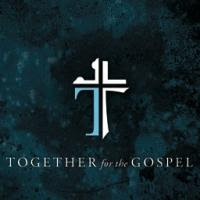Biblical Fellowship: Promoting Bible Translation, Church Planting and Theological Education
 Together for the Gospel? Yes and Amen! What about the Bible? Let's get Together for the Bible!Faith comes by hearing the gospel, right (Rom. 10)? So we plant churches. But how do we plant churches without the Word of God? We can start by evangelizing, which is oral proclamation of the gospel (or other suitable means of verbal proclamation, such as sign language for the deaf). But as people come to faith and yearn to grow in their love for God and others, they will need to be discipled by others with the Word of God. They will will need to obey all of God's Word as they are taught and discipled (Matt. 28:18-20). They will gather together regularly (Heb. 10:25) in order to hear the Word publicly read aloud (1Tim. 4:13), preached (2Tim. 4:1-4), prayed and sung (Psalms), and even seen depicted through the ordinances of baptism and the Lord's Supper (Rom. 6; 1Cor. 11).Church planting seems all the rage today, as it should be in our obedience to the Great Commission. But how shall churches be planted for the more than 6,500 language groups that lack a Bible? Some orality folks say that church planters just need to memorize “re-crafted” parables and narrative portions of Scripture. But that simply will not do, as the church needs ALL of Scripture (2Tim. 3:14-17) to be read, preached, prayed, sung and seen in the ordinances, if its members are to know how to follow and obey their Lord and Savior (Matt. 28:18-20).What is really encouraging to watch is the way that groups of churches are fellowshipping, partnering, co-laboring, networking, working together to plant churches. The Southern Baptist Convention is just one example of this. Not technically a denomination, the SBC is a fellowship of churches that cooperate together for the Great Commission. The thousands of SBC churches that pool their money together in the Cooperative Program give in order to support the sending of missionaries and the maintaining of its seminaries, which train the missionaries and pastors that then equip the churches to do the work of ministry. It's a wonderfully biblical model of the interdependence of local churches. And they are not alone, other non-denominational and denominational groups also network together for planting churches and theological education.But what about Bible translation? What has historically sparked great gains in translating the world's languages? According to Paul Ellingworth, the establishment of Bible societies in the 1800's was the single most important factor for 61 languages receiving a complete Bible for the first time. Ellingworth writes, "More than twice as many languages received a complete Bible for the first time in the nineteenth century as in the entire previous history of printing: sixty-one of these languages between 1800 and 1885" (Noss, A History of Bible Translation, 133). This explosion in translation is attributed to the establishment of the British and Foreign Bible Society, along with other Bible societies that followed.But what sparked the launch of these Bible societies? It was the modern missionary movement, including the British Methodist Missionary Society (1786) and the Baptist Missionary Society (1792). Missionary societies were formed by churches working together.What's my point? We see examples in Scripture of churches partnering together for famine relief (2Cor. 8-9) and for the furtherance of the gospel through sending missionaries to evangelize (i.e. Paul's first journey, cf. Acts 13), and to disciple (i.e. Paul's 2nd and 3rd journeys, cf. Acts 15-18). Paul planted churches through being sent and supported by partners in the gospel (Phil. 4; Rom. 15; 2Cor. 11). He sent some trusted co-laborers to establish elders (Titus) and others to pastor some of these churches when they were facing theological controversy (1-2 Tim.). In so many words, Paul was all about churches working together to plant churches led by godly elders/pastors who would read, preach, pray, and sing the Word of God (and show the Word through the ordinances) in the gatherings of the local church, for the edification and building up of the saints (Eph. 4), so that churches would bring God glory (Eph. 3).Paul calls this co-laboring "fellowship," and encourages us to follow his example. Historically, when churches partnered together through missionary societies, not only were churches planted but Bible societies were formed so that church planting missionaries could have the Word of God to proclaim in evangelism, teach in discipleship, and read, exposit, sing and pray in the church gathering.We too should join in promoting the glory of God through laboring together in the work of planting churches, translating the Bible, and training the next generation of pastors, translators, authors, scholars and leaders (i.e. theological education).Let's come Together for the Bible, to help put the Bible into the remaining 6,500 languages of the world, and to help many of the 500 languages that have Bibles but need revisions.
Together for the Gospel? Yes and Amen! What about the Bible? Let's get Together for the Bible!Faith comes by hearing the gospel, right (Rom. 10)? So we plant churches. But how do we plant churches without the Word of God? We can start by evangelizing, which is oral proclamation of the gospel (or other suitable means of verbal proclamation, such as sign language for the deaf). But as people come to faith and yearn to grow in their love for God and others, they will need to be discipled by others with the Word of God. They will will need to obey all of God's Word as they are taught and discipled (Matt. 28:18-20). They will gather together regularly (Heb. 10:25) in order to hear the Word publicly read aloud (1Tim. 4:13), preached (2Tim. 4:1-4), prayed and sung (Psalms), and even seen depicted through the ordinances of baptism and the Lord's Supper (Rom. 6; 1Cor. 11).Church planting seems all the rage today, as it should be in our obedience to the Great Commission. But how shall churches be planted for the more than 6,500 language groups that lack a Bible? Some orality folks say that church planters just need to memorize “re-crafted” parables and narrative portions of Scripture. But that simply will not do, as the church needs ALL of Scripture (2Tim. 3:14-17) to be read, preached, prayed, sung and seen in the ordinances, if its members are to know how to follow and obey their Lord and Savior (Matt. 28:18-20).What is really encouraging to watch is the way that groups of churches are fellowshipping, partnering, co-laboring, networking, working together to plant churches. The Southern Baptist Convention is just one example of this. Not technically a denomination, the SBC is a fellowship of churches that cooperate together for the Great Commission. The thousands of SBC churches that pool their money together in the Cooperative Program give in order to support the sending of missionaries and the maintaining of its seminaries, which train the missionaries and pastors that then equip the churches to do the work of ministry. It's a wonderfully biblical model of the interdependence of local churches. And they are not alone, other non-denominational and denominational groups also network together for planting churches and theological education.But what about Bible translation? What has historically sparked great gains in translating the world's languages? According to Paul Ellingworth, the establishment of Bible societies in the 1800's was the single most important factor for 61 languages receiving a complete Bible for the first time. Ellingworth writes, "More than twice as many languages received a complete Bible for the first time in the nineteenth century as in the entire previous history of printing: sixty-one of these languages between 1800 and 1885" (Noss, A History of Bible Translation, 133). This explosion in translation is attributed to the establishment of the British and Foreign Bible Society, along with other Bible societies that followed.But what sparked the launch of these Bible societies? It was the modern missionary movement, including the British Methodist Missionary Society (1786) and the Baptist Missionary Society (1792). Missionary societies were formed by churches working together.What's my point? We see examples in Scripture of churches partnering together for famine relief (2Cor. 8-9) and for the furtherance of the gospel through sending missionaries to evangelize (i.e. Paul's first journey, cf. Acts 13), and to disciple (i.e. Paul's 2nd and 3rd journeys, cf. Acts 15-18). Paul planted churches through being sent and supported by partners in the gospel (Phil. 4; Rom. 15; 2Cor. 11). He sent some trusted co-laborers to establish elders (Titus) and others to pastor some of these churches when they were facing theological controversy (1-2 Tim.). In so many words, Paul was all about churches working together to plant churches led by godly elders/pastors who would read, preach, pray, and sing the Word of God (and show the Word through the ordinances) in the gatherings of the local church, for the edification and building up of the saints (Eph. 4), so that churches would bring God glory (Eph. 3).Paul calls this co-laboring "fellowship," and encourages us to follow his example. Historically, when churches partnered together through missionary societies, not only were churches planted but Bible societies were formed so that church planting missionaries could have the Word of God to proclaim in evangelism, teach in discipleship, and read, exposit, sing and pray in the church gathering.We too should join in promoting the glory of God through laboring together in the work of planting churches, translating the Bible, and training the next generation of pastors, translators, authors, scholars and leaders (i.e. theological education).Let's come Together for the Bible, to help put the Bible into the remaining 6,500 languages of the world, and to help many of the 500 languages that have Bibles but need revisions.
